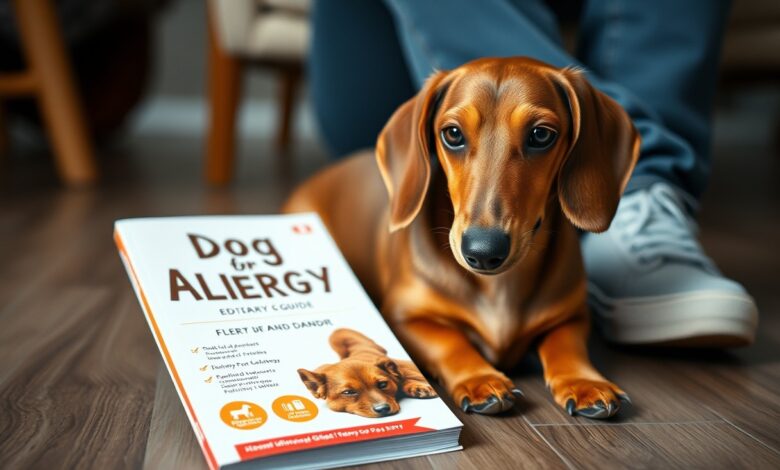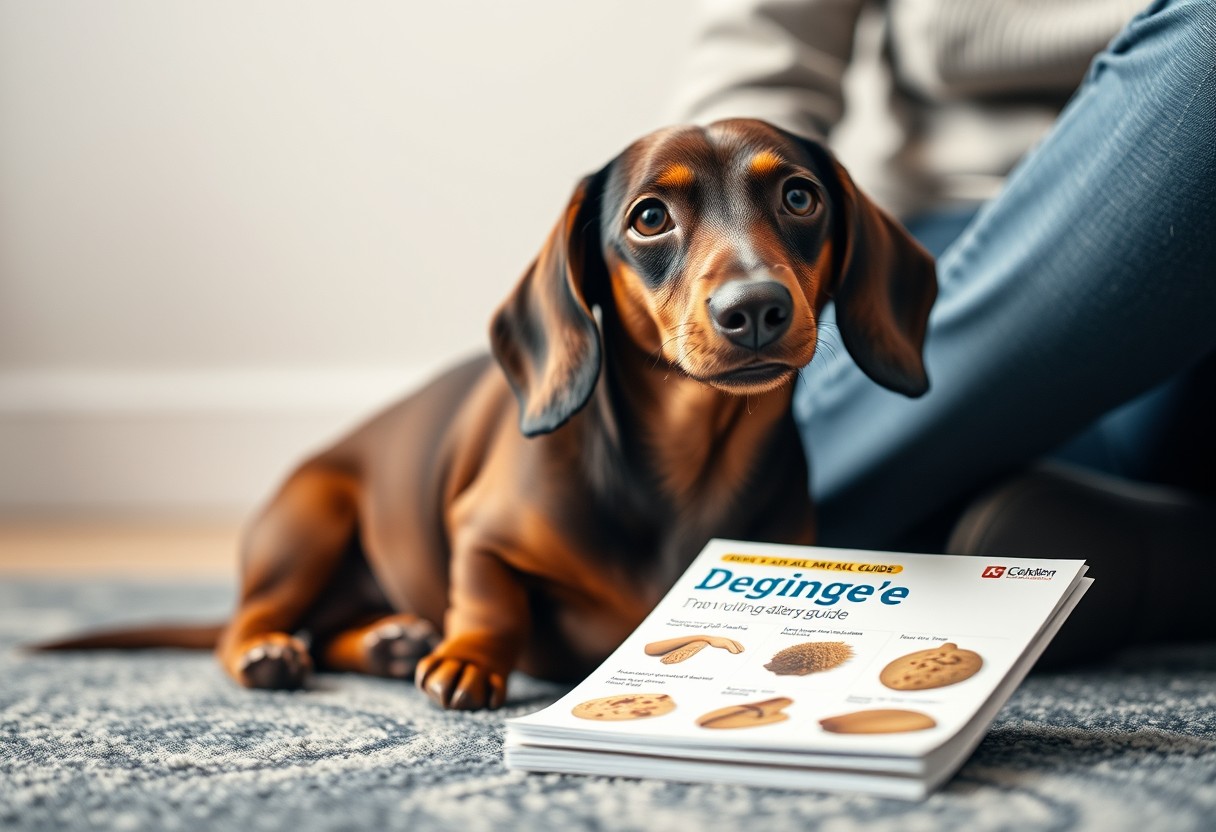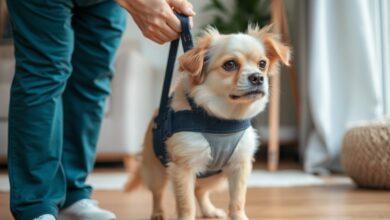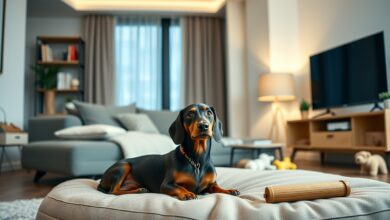Are Wiener Dogs Hypoallergenic? Allergy Guide

This guide provides you with crucial insights into whether wiener dogs, or dachshunds, are suitable for allergy sufferers. Understanding your dog’s potential to trigger allergic reactions is vital for maintaining a healthy environment at home. While no dog is entirely hypoallergenic, some breeds produce fewer allergens than others. In this article, you’ll discover the factors affecting your allergies, tips for managing symptoms, and what you should consider before welcoming a wiener dog into your family.
Key Takeaways:
- Wiener dogs (Dachshunds) are not considered hypoallergenic.
- Allergy triggers often come from dander, saliva, and urine, which are present in all dog breeds, including Wiener dogs.
- To manage allergies, consider regular grooming and cleaning to reduce exposure to allergens in the home.
Understanding Hypoallergenic Dogs
To address allergies when selecting a pet, it’s crucial to understand the concept of hypoallergenic dogs. These breeds are often preferred by allergy sufferers due to their lower likelihood of triggering allergic reactions. However, it’s important to note that no dog is entirely hypoallergenic; rather, they produce fewer allergens compared to other breeds, making them a more suitable option for you if you’re sensitive to pet dander.
What Does Hypoallergenic Mean?
Hypoallergenic breeds are those that are less likely to cause allergic reactions in individuals sensitive to pet allergens. This is achieved through traits such as minimal shedding and lower production of dander and saliva, which often carry the proteins responsible for allergies. While they may be a better choice for allergy sufferers, a true hypoallergenic dog does not exist, so maintaining proper grooming and cleanliness is still important.
Common Myths About Hypoallergenic Breeds
Common misconceptions abound regarding hypoallergenic dog breeds, leading to confusion among potential pet owners. Many people wrongly assume that all hypoallergenic dogs are safe for allergies, without recognizing that individual sensitivities can vary significantly. Additionally, some believe that if a breed is marketed as hypoallergenic, it requires no grooming or care—this is simply not true as regular grooming is crucial to minimize allergens in your home and keep your dog healthy.
A common myth is that hypoallergenic dogs do not shed at all, which can be misleading. While breeds like the Poodle or Bichon Frise may shed less, they still lose hair, and that can contribute to allergen buildup. Misunderstandings also exist around the assumption that hypoallergenic breeds need no grooming; in fact, brushing, bathing, and regular maintenance are vital to limit allergen exposure. Ultimately, no dog can guarantee a completely allergy-free experience, so thorough research and understanding your own sensitivities are key before welcoming a pet into your home.
Types of Dogs and Allergen Levels
Clearly, understanding the different types of dogs and their associated allergen levels is crucial if you or your family have sensitivities. Below is a simplified analysis:
| Dog Breed Type | Allergen Level |
|---|---|
| Wiener Dogs | Medium |
| Hypoallergenic Breeds | Low |
| Large Breeds | High |
| Small Breeds | Varies |
| Mixed Breeds | Variable |
Perceiving the differences can help you make an informed decision.
Hypoallergenic Breeds
With numerous dog breeds claiming to be hypoallergenic, it’s imperative to research which ones might suit your needs. Some of the most popular hypoallergenic breeds include:
- Poodle
- Bichon Frise
- Portuguese Water Dog
- Schnauzer
- Maltese
Allergic Reactions by Breed Types
One critical aspect to grasp is how allergic reactions vary by breed types. Based on exposure and susceptibility, certain breeds may trigger more severe reactions than others. Consider these breeds known for their allergen release:
| Dog Breed Type | Allergen Release |
|---|---|
| Wiener Dogs | Moderate |
| Golden Retrievers | High |
| Terriers | Variable |
| Bull Breeds | High |
| Hounds | Moderate |
- Lab retrievers can cause severe reactions.
- Cocker Spaniels are also notorious for allergen release.
- Beagles can trigger mild to severe reactions.
- Collies tend to have a moderate allergen level.
- Your environment and grooming play significant roles.
Assume that understanding these factors will aid you in selecting the right breed.
Dogs can vary widely in their allergen levels, which can directly impact you and your loved ones’ quality of life. Recognizing that certain breeds release more allergens than others is crucial. It’s worth mentioning that some dogs may not trigger immediate reactions, yet consistent exposure could lead to accumulated allergens causing more serious reactions over time. Understanding grooming practices and adopting specific cleaning routines can greatly reduce allergens in your home. The following breeds are often flagged for their potential to induce allergies:
| Common Breed Allergens | Allergen Level |
|---|---|
| Shepherds | Moderate to High |
| Rottweilers | High |
| Bulldogs | High |
| Schnauzers | Low |
| Yorkshire Terriers | Low |
- Siberian Huskies may surprise you with moderate allergens.
- Dalmatians are known for their variable allergen output.
- Chihuahuas often have lower allergen levels.
- Cavalier King Charles Spaniels can cause reactions.
- Stay informed about your pet’s grooming needs.
Assume that comprehending these attributes can help you choose the best furry companion for your home.
Factors Affecting Allergies in Wiener Dogs
After exploring the relationship between Wiener dogs and allergies, it’s important to consider the various factors that can influence your dog’s allergic reactions. Some of these factors include:
- Genetics
- Environment
- Diet
The combination of these elements can significantly affect your experience with a Wiener dog and their potential for allergy-related issues.
Coat Type and Shedding
While Wiener dogs possess a unique coat type, their shedding habits can play a role in allergy management. Standard Dachshunds have either smooth or long coats, with the smooth coats generally shedding less. This can result in lower levels of dander, which is a significant allergen, making it necessary to maintain proper grooming practices to keep allergies at bay.
Individual Sensitivities
For each Wiener dog, individual sensitivities can vary. Factors like age, health condition, and history of allergies may cause some dogs to be more susceptible than others.
It’s crucial to understand that your Wiener dog could have unique allergy triggers. Common allergens may include pollen, dust mites, mold spores, and pet dander. Recognizing these sensitivities can help you take preventive measures, such as keeping your home clean and monitoring outdoor exposure. Keep in mind that some dogs might even experience skin reactions or respiratory issues due to contact with specific fabrics or materials. By closely observing your pet’s reactions, you can create a more comfortable environment for both you and your furry companion.
Tips for Reducing Allergens at Home
Not only can you minimize allergens by implementing a few strategic changes in your home. Consider these effective tips to create a healthier living environment:
- Invest in a high-quality HEPA air filter.
- Maintain a regular cleaning schedule, including vacuuming and dusting.
- Wash your dog’s bedding frequently.
- Use an air purifier in areas your dog frequents.
Thou shalt find it easier to manage allergens with these proactive steps.
Cleaning Strategies
Even the most diligent dog owners can struggle with allergens, but a thorough cleaning regimen is important. Focus on regularly washing surfaces where your Wiener dog spends time, including furniture, carpets, and bedding. Use hypoallergenic cleaning products to minimize irritation and invest in a quality vacuum cleaner equipped with a HEPA filter to capture allergens effectively.
Grooming Techniques
While grooming your Wiener dog may seem daunting, it plays a crucial role in managing allergens. Regular brushing can help reduce shedding and dander, which are common triggers for allergic reactions. Aim for at least weekly grooming sessions to keep your dog’s coat healthy and minimize the buildup of allergens.
Strategies for effective grooming include using a de-shedding tool to remove loose fur, which can significantly impact allergen levels at home. Incorporating regular baths with hypoallergenic shampoo helps reduce dander and keep your dog’s skin healthy. It’s important to brush your dog outside whenever possible to contain allergens, and don’t forget to clean your grooming tools frequently. Keeping a routine will not only enhance your dog’s comfort but also create a more allergen-free environment for you and your family.
Step-by-Step Allergy Management
Now, managing allergies effectively requires a strategic approach. Follow these steps to minimize allergic reactions while enjoying the companionship of a Wiener dog:
| Step | Description |
| 1. | Consult an allergist for personalized advice. |
| 2. | Choose a hypoallergenic Wiener dog. |
| 3. | Prepare your home to reduce allergens. |
| 4. | Regular grooming and bathing of your dog. |
| 5. | Establish a no-pets zone in your home. |
Preparing Your Home
There’s no doubt that creating an allergy-friendly environment is vital when welcoming a Wiener dog. Start by thoroughly cleaning your living space, removing any dust or pet dander. Use air purifiers with HEPA filters and keep your dog’s sleeping area clean and separate from your own.
Introducing a Wiener Dog to Allergy Sufferers
Preparing to introduce a Wiener dog to allergy sufferers involves careful planning. Before bringing the dog home, allow allergy sufferers to interact with the dog in a controlled environment first. This way, you can assess their reactions in a safe space. If they tolerate the dog well, you can proceed with bringing your new furry friend into your home.
This gradual process can help you identify potential triggers and take steps to manage them appropriately. Always keep your dog well-groomed to minimize dander, and monitor your allergy sufferers for any signs of discomfort. Be mindful of, your health must come first, so ensure that you have allergy medications on hand when introducing your Wiener dog.

Pros and Cons of Owning a Wiener Dog
All dogs bring their own unique set of advantages and challenges. Understanding the pros and cons of owning a Wiener Dog can help you decide if this breed is right for you. Below is a quick overview:
| Pros | Cons |
|---|---|
| Affectionate and loyal companions | Potential for separation anxiety |
| Low grooming requirements | Prone to certain health issues |
| Good with children | May be stubborn or difficult to train |
| Playful and energetic | Can bark excessively |
| Size makes them ideal for apartments | Short stature can lead to back problems |
Benefits of Wiener Dogs
Benefits of owning a Wiener Dog include their affectionate nature and playful personality, which can bring joy to your home. They are great companions for families and individuals alike, thanks to their adaptability to various living situations. Their short grooming needs mean you can spend less time on upkeep and more time enjoying quality moments together.
Challenges for Allergy Sufferers
Cons of owning a Wiener Dog can be significant for those who suffer from allergies.
Challenges you may face as an allergy sufferer when considering a Wiener Dog include the dog’s tendency to shed fur and dander, both of which are known to trigger allergic reactions. Keep in mind that while Wiener Dogs might be less allergenic than some other breeds, they still produce allergens. It’s crucial to assess your own tolerance levels before making a commitment. Additionally, regular cleaning and grooming routines may become crucial to minimize allergen buildup in your home. The potential for underlying health issues in this breed can further complicate your situation, as it may require more care and attention.
Summing up
Now that you are informed about the hypoallergenic nature of Wiener Dogs, it’s important to know that while they may produce fewer allergens than other breeds, they are not entirely allergen-free. If you are considering a Wiener Dog, it is advisable to spend time with the breed to assess your personal allergy response. Regular grooming and cleaning can also minimize allergens in your home, ensuring a more comfortable living environment for both you and your new furry friend.





